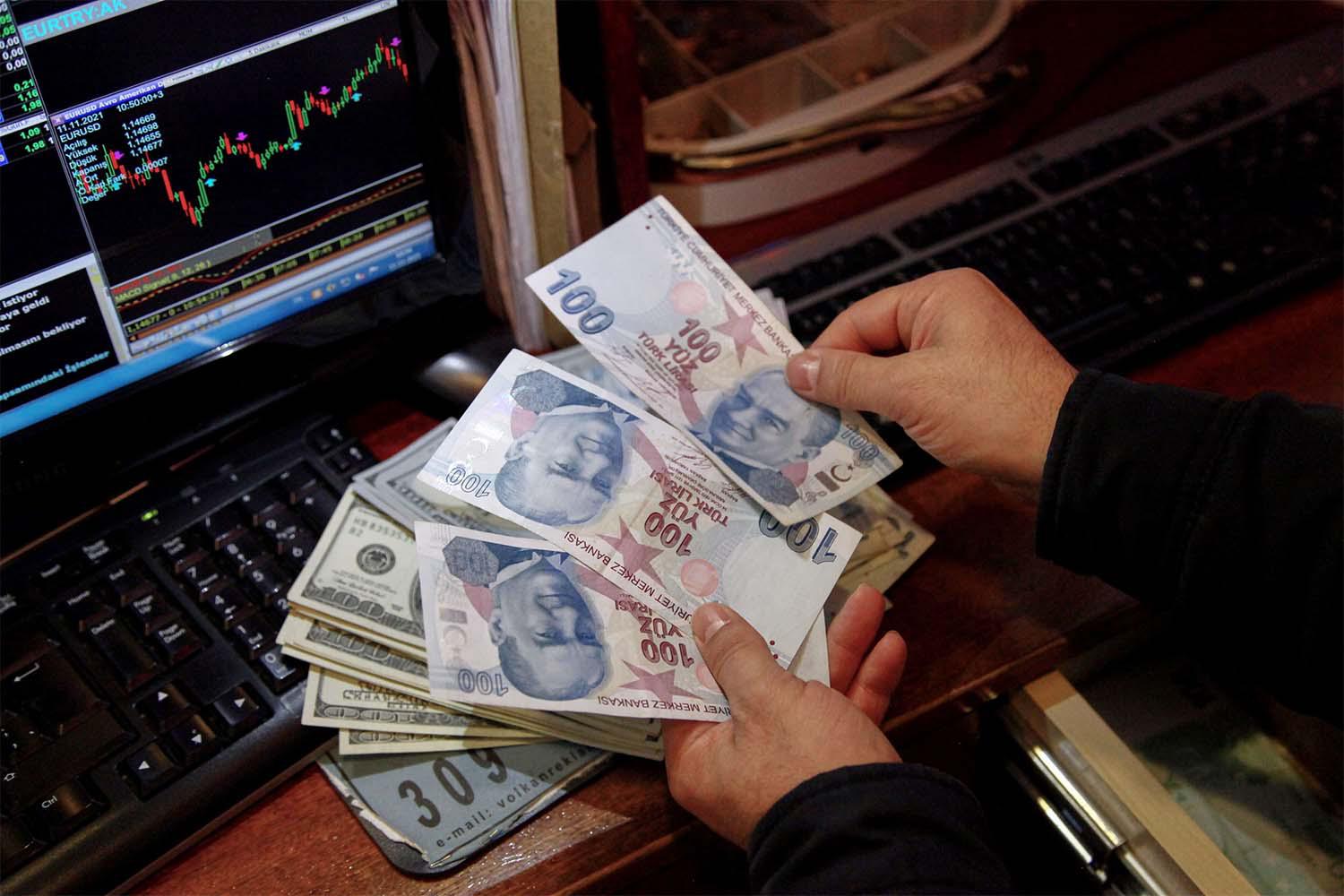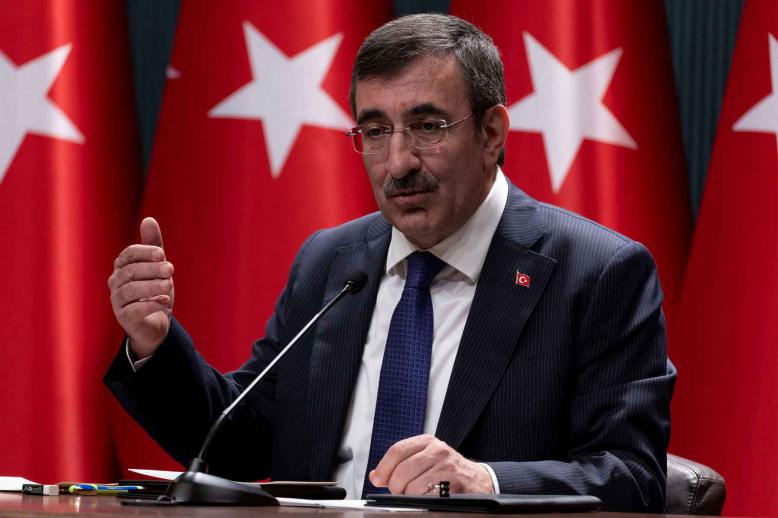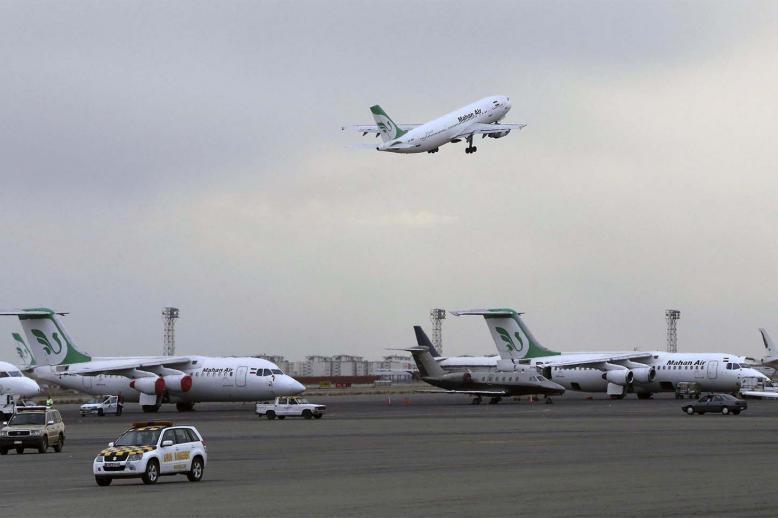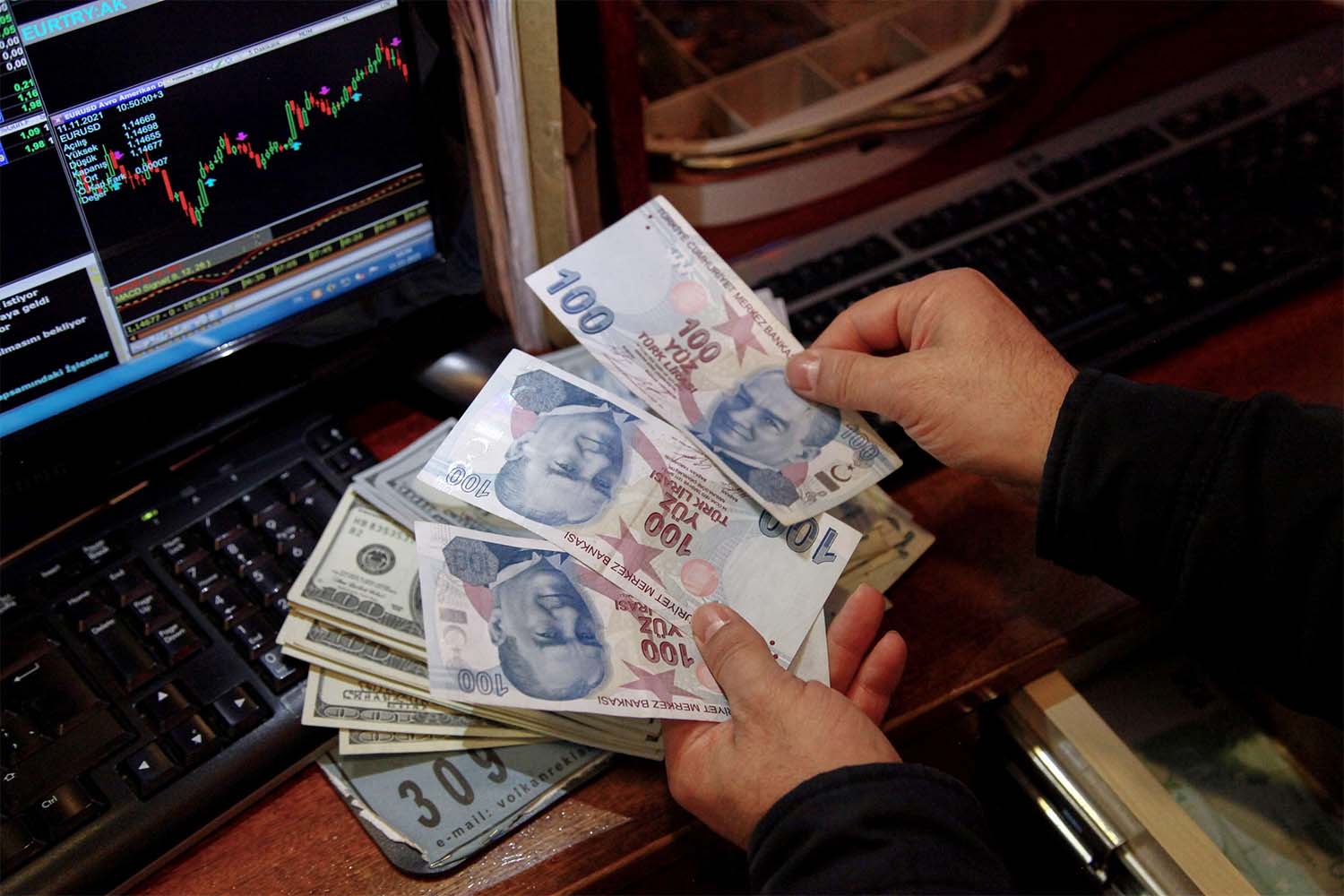Turkey reaffirms commitment to aggressive rate cuts
ANKARA - Turkey reaffirmed on Friday its commitment to recent aggressive rate cuts, despite a lira plunge to record lows, with the deputy finance minister and central bank saying inflation would pass and the policy had helped boost commercial loans.
In a historic slide, the lira hit 13.45 against the dollar on Tuesday, triggered by President Tayyip Erdogan's defence of the central bank move to slash the policy rate to 15%, despite near 20% inflation.
The currency has lost as much as 45% of its value this year, with around half of those losses occurring since the start of last week. After a rebound in the last three days, it was flat at 12.0795 versus the dollar at 0930 GMT.
Many economists and opposition lawmakers have called for an immediate policy reversal, while the government is increasingly standing by Erdogan's push for monetary stimulus despite the risks, including a sharp erosion of Turks' earnings.
"We need to evaluate Turkey's economy from a bigger window, rather than a narrow perspective only taking the exchange rate as a basis," Deputy Finance Minister Nureddin Nebati said late on Thursday on Twitter.
"Under the current market conditions, there is no issue with the policy rate being kept lower than inflation."
Central Bank Governor Sahap Kavcioglu met banking sector officials on Thursday evening and discussed the rate cuts with them, saying they were working in harmony with the sector, with strong communication.
On Friday, the central bank said revisions in its monetary policy stance since September had started a recovery in commercial loan growth.
Nebati's boss, the Treasury and Finance Minister Lutfi Elvan, who is seen as following orthodox policy, has kept mostly out of the spotlight in recent months and there has been speculation he could be ousted. The Palace has not commented.
Asked about the speculation, Meral Aksener, leader of the opposition IYI Party, told Turkey's FOX TV: "I think Mr. Nebati is our new minister candidate, that's what it seems."
Determined on low rates
Opposition politicians have accused Erdogan of dragging the country into a crisis and called for immediate elections, while many economists have described the current policy as reckless.
"It is hard to see how Turkish policymakers will come out of this given an unwillingness to engage in more orthodox policies," said Magdalena Polan, principal economist, Central Europe and Middle East, PGIM Fixed Income.
She said measures would have to be taken and will either be rate tightening and more credible policies, or non-orthodox steps as used in the past – the risk of which was increasing.
Nebati said easing would provide stimulus to the economy to boost employment and exports, while tackling the current account deficit. He said revenue earned from the low rates policy would be directed to key imports, such as energy and raw materials.
"The manipulative attacks waged on the Turkish Lira over our low interest rate policy will not seriously damage our economy," he said.
"Since 2013, every time we attempted to implement our low interest rate policy, we were met with strong opposition. This time, we are determined to carry this out."
Many Turks, already facing high inflation, fear price rises will accelerate. Several told Reuters the dizzying collapse of the lira was upending their household budgets and future plans.
Despite mounting criticism, officials have told Reuters that Erdogan had ignored appeals, even from within his government, to reverse policy.
Instead, he has defended the policy and vowed to win what he called an "economic war of independence".






